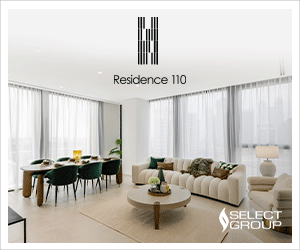When you arrive in Dubai for work, one of the first things you’ll think about is where you are going to stay. Companies in Dubai may give housing in addition to the wage package they provide, but most do not, and it is then your responsibility to find a rental property in Dubai. And for this, you can rely on Zoom Property, as we have the latest property listings available.
Experts recommend that you spend roughly 30% of your net monthly income to pay the rent of your living space. However, before signing your lease contract, check to see if there are any additional rental costs so you don’t wind up spending more than you should.
Additional Costs Associated with Renting a Property in Dubai
The rental segment is now tenant-friendly these days, meaning you might move to a larger house or a better location while staying within your budget.
You can easily get a property for rent in Dubai but you have to make sure that you don’t get extra charged. To avoid this unanticipated situation, we’ll reveal some of the hidden fees you can face when renting a house in the Emirate.
Initial Rent Agreement
This might be the whole annual rental sum or a lower amount, such as a quarterly payment, depending on your arrangement with the landlord. Make sure you have enough money to pay the first month’s rent.
Maintenance Fees
Developers charge maintenance fees on a yearly basis. You should be aware that the landlord is responsible to pay these fees. However, it is occasionally passed on to their renters in the first year of the contract through concealed rental conditions. But maintenance fees are mostly used to maintain large and minor common features associated with rental homes.
Service Fee
The landlords have complete discretion over whether or not to raise the service fees on the property you’re renting. Parking and utilities are included in the rental price, as well as community surveillance and security.
Although, if you believe your landlord is raising your service or utility bills excessively, you have the liberty to have legal representation available in case of a disagreement over your service fees.
Municipality fee
A housing charge, commonly known as the Dubai Municipality fee, is imposed on every property in Dubai. The housing charge is 5% of the year rent, divided into 12 monthly installments, and applied to your DEWA account.
Unless utilities are included in your rental contract, you would be responsible for paying this along with your utility bills as a renter. Simply, the housing charge is paid by whoever’s name appears on the DEWA bill.
Agency Fees
The agency fee on your property in Dubai might cost you anything from 2% to 5% of the first year’s rent. This will only happen if you rent a property through a real estate agent or a brokerage business.
However, fees are subject to vary at the discretion of the agent. Furthermore, in the event of a tenancy contract renewal, the agent has no right to a fee increase because this procedure does not necessitate the involvement of an agent.
Permit of Moving-in
A property management or homeowners’ association may request a move-in permit. The tenant will require the tenancy and Ejari documentation to apply for move-in permission. The owner’s community management will also request confirmation from the landlord through email.
Security Deposit
A one-time security deposit also has to be paid to the landlord in addition to your first rental payment. This deposit is normally approximately 5% for unfurnished and 10% for furnished properties. However, it might be equal to a month’s rent.
When the renter vacates the property, this sum is reimbursed to them. Landlords, on the other hand, may deduct a portion of the security deposit for painting and minor repairs. One of the best ways to get your security deposit returned is to return the property in the same condition as when you first got it.
Ejari Fees
You will also face Ejari fees, when you are going through the process of renting a property in Dubai. It’s an online registration system utilised to legally validate rental agreements and contracts between renters and landlords. The landlord is responsible for the registration, however, the tenant can also register the contract themselves.
Furthermore, tenancy contracts that are not registered on Ejari are regarded illegitimate, and the tenant will be unable to utilise the document to denounce any rent-related mistreatment.
DEWA Fees
Utility companies need refundable security deposits, as well as continuous usage costs. A one-time fee of AED 2140 for an apartment and AED 4140 for a villa would be charged by the DEWA (Dubai Electricity and Water Authority).
When you move out, you’ll get your money back. However, you’ll need to provide the original deposit receipt. Moreover, it is important to note that when setting up your DEWA connection in your new property in Dubai, there is also a non-refundable service cost.
You’ll also need to cover the fees of telecommunications/internet access and personal relocation. When estimating your rental budget, don’t forget to include these hidden expenditures.
District Cooling Fees
Living in Dubai without an air conditioner is challenging, but you also want to keep your air conditioning expenditures to a minimum. Fortunately, district cooling is a solution for you. It is a centralized cooling system for buildings that reduces air conditioner power use, making each home more energy-efficient. The cost of district cooling varies depending on the amount of energy used and the size of the property.
Wrap Up
After paying all of your main debts and some additional costs, you will finally move into your new apartment. However, it’s not easy to maintain a property in Dubai. You still need to look out for interior designs, minor service, maintenance charges, and gas fees. These costs vary by property and are revealed by the landlord or the owner.



 Join Our Newsletter
Join Our Newsletter